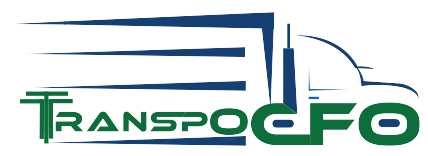Keep Your Books On Track And Your Truck On The Road
Why You Need A Bookkeeper In The Trucking IndustryWhile people see plenty of trucks on the road, people don’t see the processes that go into getting that truck on the road.
In fact, most trucking businesses will fail within the first year. One of the most complex, yet crucial aspects of trucking is financials. From tax preparation and determining deductions to reconciling books and managing P&L’s, it can all get a little overwhelming –especially for owner-operators and drivers.
Bookkeeping for truck operators is the ultimate solve for those looking for financial support. However, not all accountants or tax services will understand the ins and outs of the industry and what works best for you and your truck. That’s why finding a seasoned and experienced tax professional for truck drivers is a foolproof way of streamlining your financials, letting you save time, money, and peace of mind.
- TranspoCFO can help with all of truck operator’s most common concerns including:·
- Tax deductions for fleet owners and owner-operators· 1099 truck driver taxes·
- Truck operators bookkeeping services·
- Cares Act for owner-operators
Focus on your business and leave the financials to us –the experts! Starting at the ground level, we look at factors from layovers, lumper fees, and everything in between. Keep your financials all in one place and at your fingertips. Here are five tips surrounding common questions and how TranspoCFO can provide the best tax service and accounting advice for fleet owners.
When to Prepare for Tax Season
Tax season can quickly become the worst season for truck drivers and owner-operators if you’re not fully prepared. Maintaining records, categorizing expenses, and tracking receipts all year long is an absolute must if you want to avoid delays, audits, and more. Let us deal with the 1099 for truck operators so you can get back to business.
How to Calculate Business Performance.
Money talks. Your financials are the window to how your business is performing. Organizing documents like P&Ls, balance sheets, and cash flow statements can give you a quick and easy look into overall business performance.
Where to Track Your Money
Knowing where you’re spending money means knowing where not to spend your money – we’ll analyze the ins and outs of your cash flow, making sure you’ll not only pay your bills on time, but also find ways to save for the future.
How to Follow Audits
While they may be annoying, they are at times necessary. With TranspoCFO, audits don’t have to be the headache they once were!
We’ll keep your financials accurate, organized, and readily available so you don’t have to get hit with additional taxes or penalty fees.
When To Reconcile Books
Reconciling your books on a scheduled cadence is the easiest way to avoid accounting errors down the road and spot fraud. We’ll track every penny and ensure all your statements line up with your books every month.
Keeping financial statements organized is crucial – not only for providing a snapshot as to how your business is performing but also to create a seamless and simple process come tax season.
With TranspoCFO, we have solutions for all kinds of owner-operator bookkeeping and businesses. From accounting services, outsourced CFOs, and tax preparation for truck drivers, let us focus on the financials so you can focus on your business. Schedule a call with one of our experts now!
Keep Your Books On Track And Your Truck On The Road Read More »





